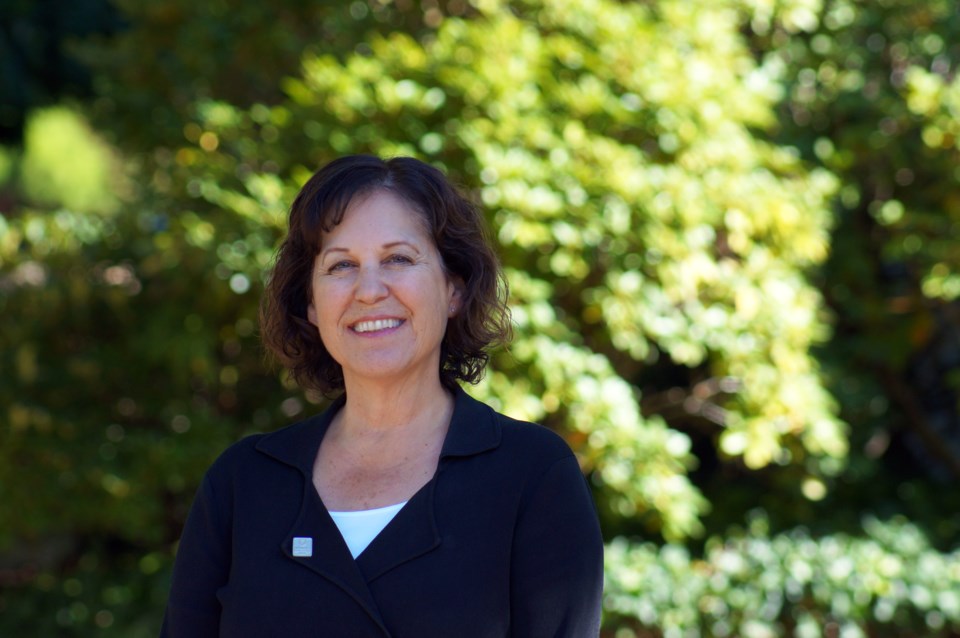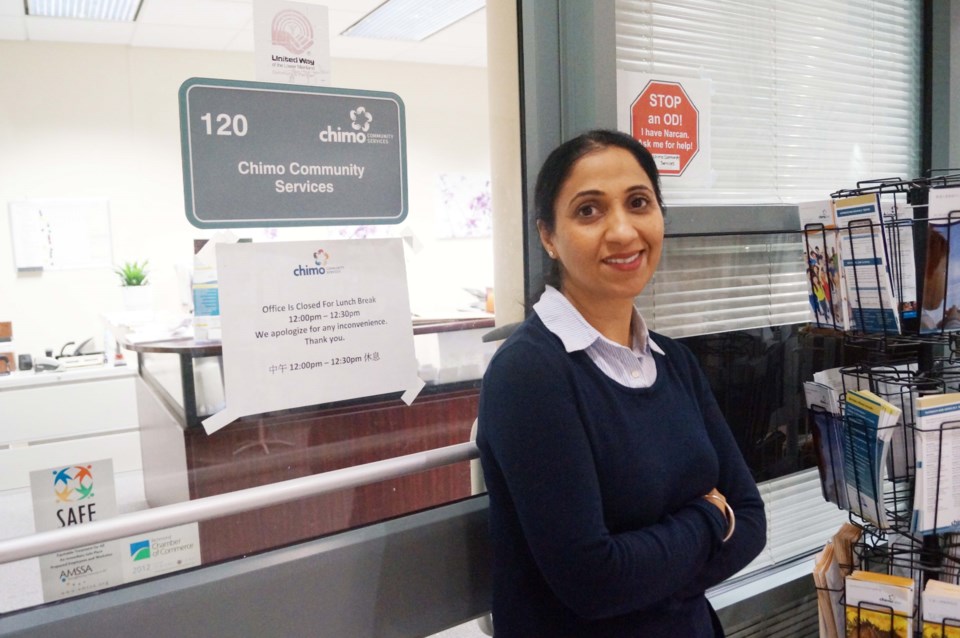After the man has smashed the windows, punched holes in the walls, tossed the dishes and battered the woman in front of their children, it is often the former who remains in the home, after police arrive.
There to assist the remainder of the broken Richmond family is a team of crisis workers at Nova Transition House, operated by Chimo Community Services, a non-profit crisis assistance organization.
“When you run out the door in your socks, with one baby under one arm and your purse under the other, you need everything right down to pajamas,” said Diane Sugars, Chimo executive director.
Nova House, a secret, single-family home in a Richmond neighbourhood, has a proven track record of successfully keeping families together and children out of the care of the Ministry of Children and Family Development, said Sugars.
But it is the city’s only transition house for women and children fleeing violence or facing a severe life crisis.
Furthermore, the system that protects children in such cases is highly patriarchal.
The fact that it is the women and children who inevitably are forced to leave the family home because law enforcement can’t ensure the man doesn’t return to reoffend, speaks to a systemic gender bias, said Sugars.
When a woman and her children are admitted to the house, they typically get 30 days to recover, seek counselling and medical services and find a new home.
For instance, Chimo housing manager Neena Randhawa said Nova House was recently able to assist a refugee mother who was evicted due to a home demolition.
“She had a language barrier, she had one child in a wheelchair and she was a visible minority; so going out and looking for a place was very hard; and she was on disability,” said Randhawa.
With only three months before her home would be demolished, the Nova House team was able to step up.
“The Ministry (of Children and Family Development) was on her case if she becomes homeless.
“She could be on the street, and the Ministry would have taken the children and placed them somewhere. So we helped her with funding here and there and found a place to live, and we were able to keep the family together,” said Randhawa.
Nova House case workers help with mental health and addiction problems more often than not.
Nova House, explained Randhawa, also helps mothers find subsidized daycare or a kids’ camp “so mom can attend a counselling program, or just go on a job search, or simply be by herself for once.”
And, “we work with the Ministry closely to ensure the family is together,” said Randhawa.
Sugars said separating a family “traumatizes the child for life.
“You can’t undo a memory, so regardless of how many times something happens, just one tiny event is imprinted for life. They require counselling. We don’t know how this will affect them later in life.”
With a capacity of 13 beds, Nova House is turning away more people than it helps. Sugars said they throw sleeping pads on the floor at times, exceeding capacity.

“We’ll do that. But we are turning people away and all the transition houses are turning people away, putting children at risk,” she said.
“There needs to be more money for a new transition house,” said Sugars.
“And there needs to be money to run the house, because it’s staffed 24/7, and there’s all the hygiene products and all that other stuff you need — diapers cost money.
“So we need more money. And we need subsidies for women to move into housing to get their feet under them.
“When you’re talking about the whole spectrum to ensure how a child is safe and healthy, if they’re fleeing an abusive situation, there’s a lot more than just having the transition house. Where are they going to go? They don’t want to leave their neighbourhood or their friends.”
But as Randhawa notes, even if families are helped for 30 days at Nova House, a lack of affordable housing is preventing them from moving forward.
“Think about it,” explained Sugars.
“First off, dad’s beating up on mom and now we’re going to put the children in a place they’ve never been before, with strangers, and then reunite the family. You go through so much trauma with the abuse and then having to flee that situation — this is dad — and having to run away from your own home, your toys, your bed and your clothing to a strange place is already traumatic enough. We always try to keep the family together.”
Aside from needing a new transition house and more funding, as well as the monumental task of finding safe, affordable housing, Sugars and Randhawa also see a simpler solution.
“The perfect world is the man, the abuser, has to leave, not the victims,” said Sugars.
But, “if the man moves out then the woman is still vulnerable at times for him to come back. That’s why, very often, women go to a place where no one knows where the transition house is,” as is the case for Nova House, noted Sugars.
That’s why Randhawa suggests an overhaul of the system. In cases of domestic violence, police need to be given greater tools to prevent the man from returning to the home, such as a restraining order or, in extreme cases, jail.
Randhawa thinks transition houses should be built for men.
“It would be so much easier if they can take this one man and say, ‘Hey, OK, why don’t you separate for a bit. Things are not working and you need to go to a safe place where there’s counselling, you can speak to a lawyer.’ Because he has rights. Maybe he needs medication?” said Randhawa.
“It’s so much easier for a man to look for a one-bedroom apartment than a mom with three children to look for three or four bedrooms,” Sugars added. “Men need to step up — all men — and say this needs to stop and we need to take ownership of it and do our best to prevent it.”
The answer to how we not only keep children safe but enable them to thrive, is multifacited, said Sugars.
Nova House is a vital service, but it’s only part of the puzzle. We also have to look at housing, counselling, child care and patriarchal biases, she concluded.
Today is Child Welfare Media Day in B.C., a day in which media across the province have agreed to publish a story regarding the child welfare system, focusing on successes while also pointing to what more needs to be done.



